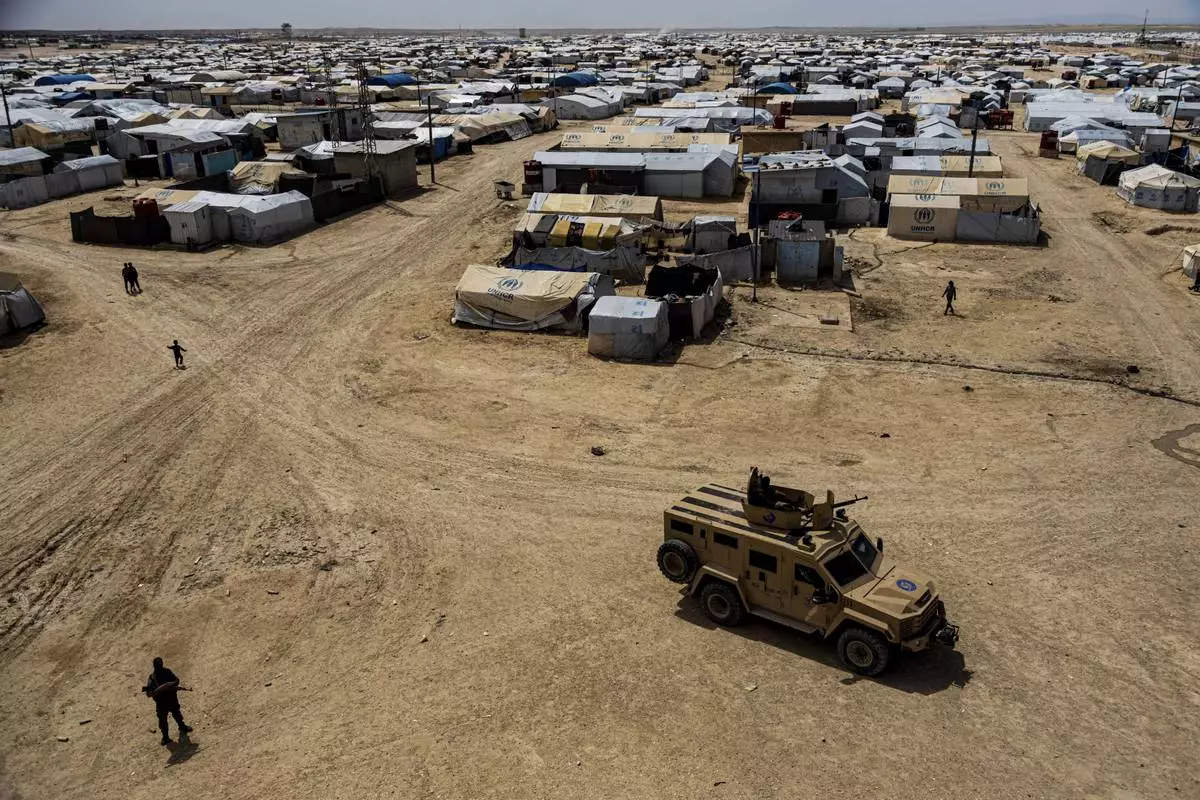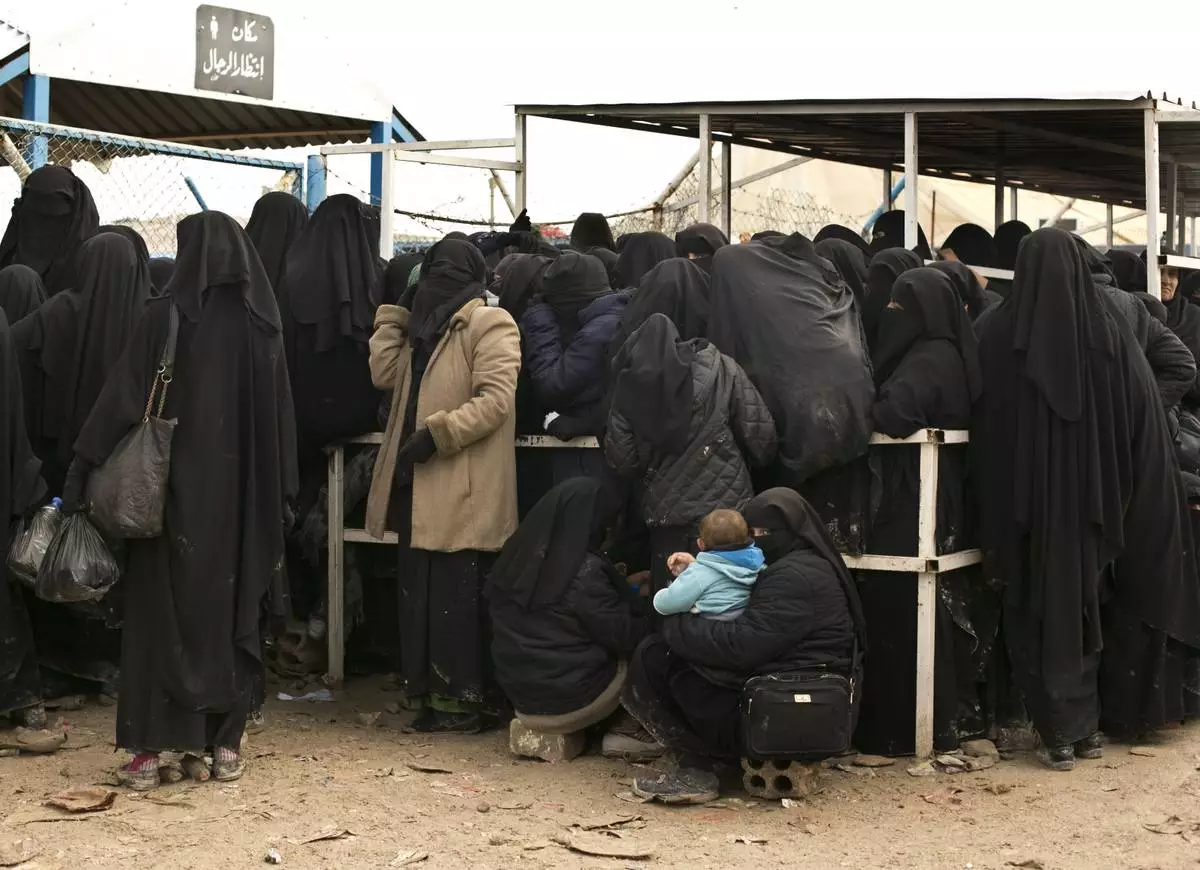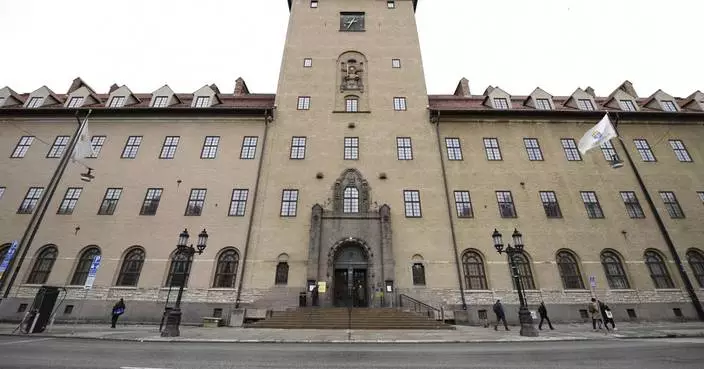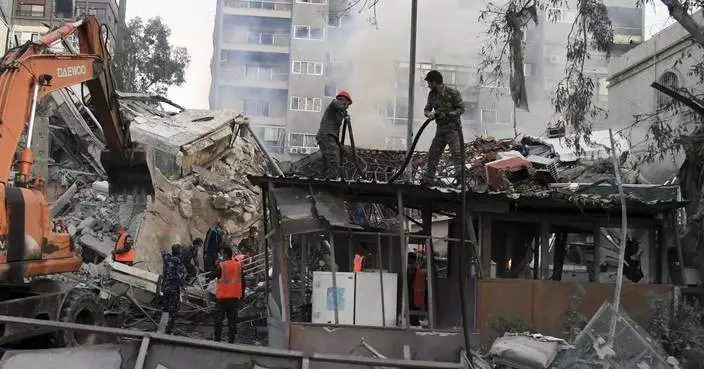Syrian media said Wednesday that a Syrian civilian was killed and another was wounded when U.S. troops opened fire on locals who had tried to block a U.S. convoy from driving through a checkpoint in a village in the country's northeast.
The state SANA news agency said the locals had gathered at the army checkpoint in the village of Khirbet Ammu, east of the town of Qamishli, pelting the U.S. convoy with stones and taking down a U.S. flag from one vehicle. At that point, U.S. troops fired with live ammunition and smoke bombs at the residents, the report said.
There was no immediate comment from the U.S.-led coalition to the report, which could not be independently confirmed.
The reported incident marks a rare confrontation involving U.S. and Syria troops in the crowded region where Russian troops are also deployed — and is sure to further escalate tensions.
Hundreds of U.S. troops are stationed in northeastern Syria, working with their local partners from the Kurdish-led Syrian Democratic Forces to fight against the Islamic State group. The U.S. carries out patrols in northeastern Syria, but it was not immediately clear why the convoy drove into a government-controlled area.
SANA said the incident occurred after Syrian troops stopped a U.S. convoy of four vehicles traveling on the road, and hundreds of people gathered at the checkpoint to prevent it from continuing on its way. The U.S. troops opened fire and after a civilian was killed and another wounded, the residents attacked the convoy and damaged four vehicles, SANA said.
State-run Al-Ikhbariya TV aired a cellphone video showing an armored vehicle flying a U.S. flag standing on a rural road while a car appeared to be blocking its way.
Locals are seen walking past the U.S. armored vehicle, with at least two soldiers inside, one of whom steps down as civilians approach. One civilian is seen tearing a U.S. flag as he approaches the soldier.
The TV said protests spread, preventing reinforcements from coming to help the U.S. convoy. The report said the wounded civilian and was being treated at the Qamishli hospital.
Al-Ikhbariya and the Kurdish-affiliated Rojava Information Center reported that U.S. aircraft flew over the village where the incident occurred, saying there were direct clashes between U.S. troops and locals in Khirbet Ammu. The state-run TV said there were reports of a U.S. casualty, adding that troops withdrew from the area.
The Syrian Observatory for Human Rights said residents and armed pro-government militiamen in Khirbet Ammu blocked the path of a U.S. The militia fired in the air, prompting U.S. troops to fire smoke bombs. Tension escalated and U.S. troops killed one person, the Observatory said.
The Observatory, which has a network of activists on the ground, said it is not clear if the killed was a civilian or a militia member.
U.S. jets flew over the area during the confrontation, amid reports that the convoy was completely encircled. After a tense standoff, the convoy was able to leave the area as jets flying overhead broke the sound barrier.
The Observatory also said that a Russian convoy arrived on the scene to defuse the tension.
BEIRUT (AP) — Amnesty International said Wednesday it has documented widespread abuses, including torture and deprivation of medical care, in detention facilities holding thousands of suspected Islamic State members and their relatives in northeast Syria.
The centers and camps hold about 56,000 people — the majority of them children and teens — and are run by local authorities affiliated with the U.S.-backed, Kurdish-led Syrian Democratic Forces. The SDF and its allies, including U.S.-led coalition forces, defeated the Islamic State group in Syria in 2019, ending its self-proclaimed Islamic “caliphate” that had ruled over a large swath of territory straddling Iraq and Syria.
What to do with the suspected IS fighters and their families has become an intractable issue. Many countries whose citizens traveled to Syria to join IS have been reluctant to repatriate them, as have local communities in Syria.
"People held in this system are facing large-scale violations of their rights, some of which amount to war crimes,” Nicolette Waldman, Amnesty’s senior crisis advisor, told journalists.
The United States is also responsible for the alleged violations because it played a key role in establishing and maintaining the detention system, providing hundreds of millions of dollars to the SDF and affiliated forces and regularly interrogating detainees, Waldman said.
The human rights group interviewed 126 people accused of IS affiliation currently or formerly detained, along with representatives of the local administration and aid workers.
The Amnesty report said the vast majority of detainees are being held “indefinitely, without charge or trial, in violation of international human rights law and international humanitarian law,” while those who have been tried were, in many cases, convicted on the basis of confessions extracted under torture.
The alleged abuses include “beating, stress positions, drowning, electric shocks and gender-based violence,” including a male detainee who said he and others had been sodomized with broomsticks by guards, the report said. Detainees were also deprived of food, water and medical care and subjected to extreme cold and heat in overcrowded cells, with some allegedly dying of suffocation, it said.
The report added that many of the approximately 14,500 women and 30,000 children held had been victims of human trafficking, including women who were forced to marry IS fighters and minors who were forcibly recruited by the group, and that local authorities had failed to set up a “mechanism to identify trafficking victims” and protect them.
The report also criticized the practice of forcibly separating adolescent boys — some as young as 11 or 12 — from their mothers and placing them in rehabilitation centers indefinitely.
Amnesty called on local authorities, the U.S. government and other allies to bring the detention system into compliance with international law and urged the United Nations to work with them to establish a screening process to release all who are not “reasonably suspected” of having committed a serious crime.
The Autonomous Authorities of the North and East Syria Region, the civilian administration affiliated with the SDF, wrote in response to the Amnesty findings that it had not received any official complaints regarding torture in detention facilities and “if this happened, they are individual acts.”
The administration said it would take action against employees who committed violations if evidence is provided. It denied allegations that inmates were deprived of food, water and medical care. It acknowledged overcrowding in the facilities, which it attributed to lack of financial resources to secure larger centers.
The local authorities took issue with the allegation that people were arbitrarily detained, asserting that most detainees “are members of a terrorist organization and were arrested during the battles" and that many had committed crimes against humanity and war crimes.
The U.S. State Department said in its own response that “we share many of (Amnesty’s) concerns” and it has been working to address them. It called on the international community to “aid local entities’ management of these challenges” and for countries with citizens held in detention in Syria to repatriate them.
Waldman said she believes Washington "very likely knew about these poor conditions from the beginning."
She added: “We think that it may not be the case that they are doing everything they can. They need to accept a much greater responsibility, especially since they played such a key role in establishing the situation in the first place."

FILE - Kurdish forces patrol al-Hol camp, which houses families of members of the Islamic State group in Hasakeh province, Syria, on April 19, 2023. Amnesty International said Wednesday, April 17, 2024 it has documented widespread abuses, including torture and deprivation of medical care, in detention facilities holding thousands of suspected Islamic State members and their relatives in northeast Syria. (AP Photo/Baderkhan Ahmad, File)

FILE - Women residents from former Islamic State-held areas in Syria line up for aid supplies at Al-Hol camp in Hassakeh province, Syria, March 31, 2019. Amnesty International said Wednesday, April 17, 2024 it has documented widespread abuses, including torture and deprivation of medical care, in detention facilities holding thousands of suspected Islamic State members and their relatives in northeast Syria. (AP Photo/Maya Alleruzzo, File)











